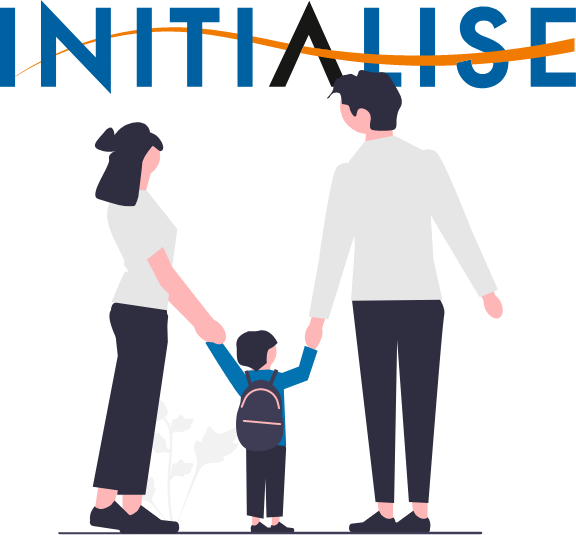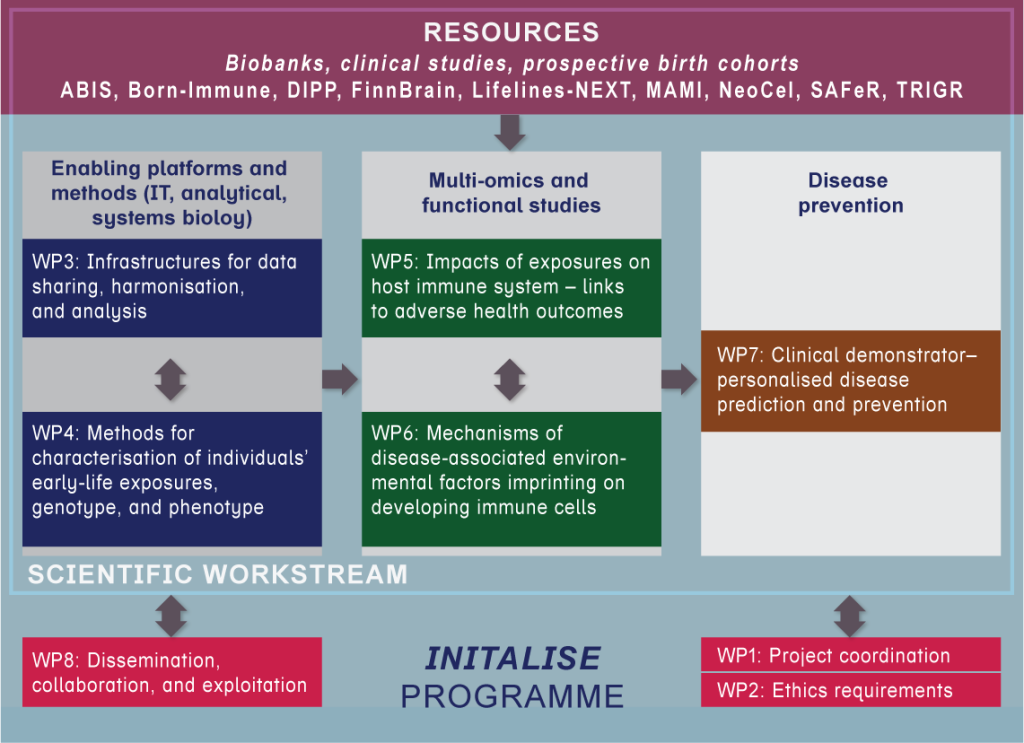About
The development of the human immune system in early life, including in utero, impacts the risks of several diseases later in life, particularly immune-mediated diseases such as allergies, asthma, and autoimmunity. Yet, the mechanisms of early life immune imprinting have been poorly understood in humans due to the difficulty in obtaining samples and the challenges of deriving the most important data from small sample volumes available. Furthermore, these studies are complicated by the many simultaneous exposures with potential impact on developing immune cells, colonizing microbes, and immune-microbe mutualism. To better understand such interactions, a combinations of large population studies with longitudinal data and long-term follow-up and more detailed studies in smaller sets of children will be needed.

This project will use a combination of discovery-driven multi-omics and mechanistic/functional studies. Our discovery-driven multi-omics studies will be conducted in longitudinal settings in participating prospective birth cohorts, where the objective will be to link early-life exposures (including chemical exposures), (epi)genome, metabolome, proteome, immunome (deep immune phenotyping using mass cytometry), transcriptome, and gut microbiome with specific adverse outcomes later in life, across three domains – immune (immune-mediated diseases), metabolic (obesity), and neurocognitive.
This will enable us to understand the environmental factors shaping human immune systems early in life, their mechanisms of action, and impact on life-course health.
The specific objectives of INITIALISE are:
1. to elucidate how exposures and genome impact gut microbiome, host immune system and metabolism, and how the interplay of these factors impact life-course health.
2. to define the role of the maturation of the immune system as a mediator between exposures and life-course health. Functional studies will be performed, to test specific mechanisms of environmental factors differing among children with different health outcomes and their imprinting on developing immune cells.
3. to perform a pilot clinical study, targeting the immune system, for personalised disease prevention.
4. to set up a collaborative data science platform for the studies of early-life factors linked with life-course health.
INITIALISE will deliver a comprehensive overview of the immune system development, spanning the prenatal and postnatal early-life periods. The project will elucidate how various environmental, and host (genotype, phenotype) factors shape the immune system, and how they may initiate the pro-inflammatory phenotype during this vulnerable period of life, and in turn, how such an immune system imprinting leads to specific adverse health outcomes.
INITIALISE work package structure

